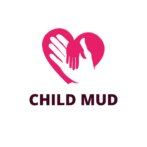Engaging preschoolers isn’t just about keeping them busy. It’s about sparking their curiosity, fostering their creativity, and making precious family memories. This article will explore the world of family activities designed specifically for these little bundles of energy.
From craft projects that stimulate their young minds, to outdoor adventures that get their tiny feet moving, you’ll discover a treasure trove of ideas. Whether you’re a parent, grandparent, or caregiver, you’ll find activities that are fun, educational, and create opportunities for bonding. So, buckle up and get ready to dive into a world full of playful learning and laughter.
Family Activities for Preschoolers
 Family activities bring along a host of benefits to preschoolers, honing vital skills and forging lasting relationships. Engaging in family-based activities lays the foundation for cognitive prowess in preschoolers. These activities bolster intellectual curiosity and nurture an intrinsic love for learning. Unified efforts, be it assembling a puzzle or baking cookies, encourage critical thinking. Skills like problem-solving and logical reasoning get a healthy boost through these shared endeavors. For instance, a simple activity of sorting colored blocks improves preschoolers’ recognition, categorization, and memory skills, fundamental to their cognitive advancement.
Family activities bring along a host of benefits to preschoolers, honing vital skills and forging lasting relationships. Engaging in family-based activities lays the foundation for cognitive prowess in preschoolers. These activities bolster intellectual curiosity and nurture an intrinsic love for learning. Unified efforts, be it assembling a puzzle or baking cookies, encourage critical thinking. Skills like problem-solving and logical reasoning get a healthy boost through these shared endeavors. For instance, a simple activity of sorting colored blocks improves preschoolers’ recognition, categorization, and memory skills, fundamental to their cognitive advancement.
Bonding and socializing form the emotional backbone of family activities. Participating together in actions, even as simple as gardening or reading a story, empowers preschoolers to understand emotions, their own, and that of others. They learn to express and communicate their feelings effectively.
Indoor Family Activities
 Delving into the realm of indoor activities, preschoolers thrive in environments that stimulate creativity and cognitive skills. This section elaborates on some indoor family activities such as creative arts and crafts and engaging board games and puzzles. Crafting nurtures creativity in preschoolers while also promoting fine motor skill development. Diving into projects using assorted materials like paper, glue, and colors, stimulates a child’s imagination, provides an outlet for expression, and fosters parent-child bonds. For instance, making personalized greeting cards for family members integrates drawing, writing, and decorating, encompassing both fun and learning. Similarly, creating small figurines from air-dry clay lets children play with colors, shapes, and patterns, offer tactile stimulation, and result in a keepsake.
Delving into the realm of indoor activities, preschoolers thrive in environments that stimulate creativity and cognitive skills. This section elaborates on some indoor family activities such as creative arts and crafts and engaging board games and puzzles. Crafting nurtures creativity in preschoolers while also promoting fine motor skill development. Diving into projects using assorted materials like paper, glue, and colors, stimulates a child’s imagination, provides an outlet for expression, and fosters parent-child bonds. For instance, making personalized greeting cards for family members integrates drawing, writing, and decorating, encompassing both fun and learning. Similarly, creating small figurines from air-dry clay lets children play with colors, shapes, and patterns, offer tactile stimulation, and result in a keepsake.
Engaging Board Games and Puzzles
Board games and puzzles provide an excellent platform for preschoolers to exercise their problem-solving skills. Integrating these into family leisure time enhances cognitive abilities while also instilling a sense of cooperation and team spirit. Take, as examples, games like ‘Candy Land’ that teach color recognition and counting, or jigsaw puzzles of different levels that challenge a child’s spatial reasoning. They graphically represent concepts and relationships, making learning a fun and interactive process. Not only do these activities provoke competitive spirit and strategic thinking, but they also strengthen family bonding by sharing laughs and creating memories.
Outdoor Family Activities
 Unlocking the benefits of nature, outdoor family activities provide playgrounds for preschoolers’ imagination, social, and physical development. Amidst the greenery and fresh air, kids learn best when they are open to explore, play, and connect with their families.
Unlocking the benefits of nature, outdoor family activities provide playgrounds for preschoolers’ imagination, social, and physical development. Amidst the greenery and fresh air, kids learn best when they are open to explore, play, and connect with their families.
Engaging preschoolers in nature walks and scavenger hunts brings about a wealth of opportunities to spark curiosity. As they observe trees, birds, and patterns in the sky, they add new lenses to their world understanding. Here, the child’s curiosity plays a central role in learning about diverse species and the environment. The excitement amplifies when turning the nature walk into a scavenger hunt. Wooden sticks, colored leaves, or smooth pebbles, the list of the “treasure” amplifies the fun of exploration and stimulates cognition.
Fun at Local Parks
Local parks serve as the perfect platform for preschoolers to indulge in playful activities while exploring the world around them. Playgrounds improve motor skills as children swing, slide, climb, or simply run around. The park invites an arena for social interaction, where preschoolers learn negotiation skills- sharing the swing or waiting for a turn on the slide. Through these playful engagements in local parks, children develop a sense of independence, self-esteem, and better health- physically and emotionally.

